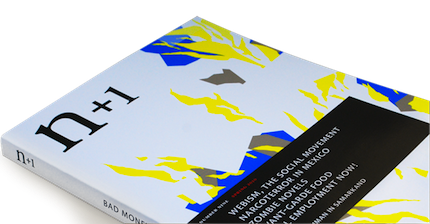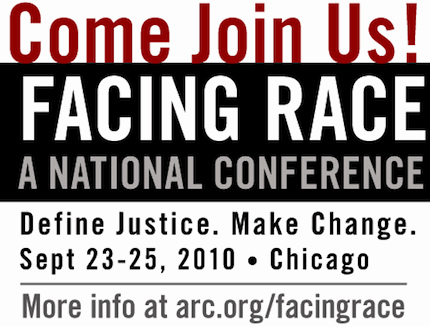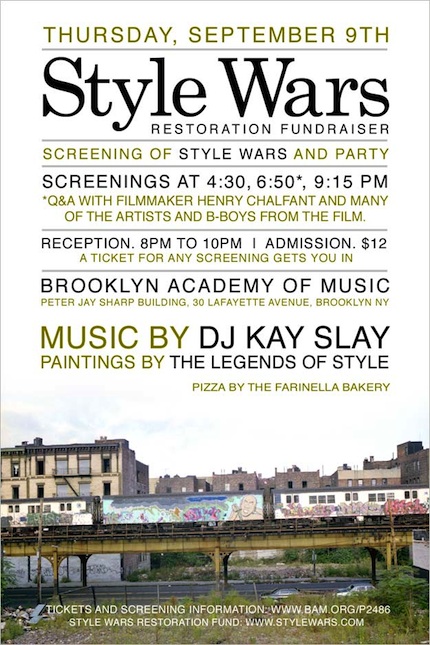
Tuesday, October 12th, 2010
Hip-Hop, Copyright + Cultural Legacy, Part 2 :: A Conversation With Angus Batey
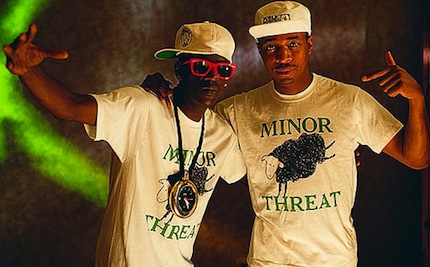
Photo by the great Glen Friedman.
Here’s Part 2 of my conversation with the fine journalist Angus Batey of The Guardian. (Part 1 is here.) Angus was pulling together material for a piece that came out last Friday on hip-hop reissues.
In this clip, we get deeper into the lost Public Enemy Def Jam boxset, geek out on what hip-hop boxsets could include, and speculate on what this all means for how we pass on our shared musical and cultural history.
Angus: Public Enemy has got a box set out now, but it’s just of the post-Def Jam material. I imagine those issues over clearances for previously unreleased material will remain an issue for Universal. Chuck D has told me that it would have been easy to do under the Def Jam/Sony relationship because there was – to paraphrase him – a very different set of corporate instincts regarding the risk inherent in that kind of project; but after Def Jam was bought out by Universal there was a change in attitude.
He also talked about something he called “new discovery” which would happen if and when anyone went back to the original PE master tapes and remixed or remastered them: there are sonic elements on those records which are unidentifiable, and indeed pretty much inaudible, in the finished and originally released versions, but without which the tracks don’t work – yet the legal onus would be on the company releasing a remaster to go through the multitracks and ensure every last thing was cleared. Chuck said those PE albums didn’t just contain samples from hundreds of records – they came from thousands.
Full clearance would be impossible under the present free-for-all rules; and there is absolutely no incentive for any of the people in the clearance industry to have those rules changed — unless, of course, it could be definitively demonstrated that a flat-rate clearance system would enable so much more sample clearance to take place that the overall sums involved would mean the whole pot of money accruing to each entity along the chain would be greater than that generated through the present system.
Here’s a different question: As a music nerd I yearn to be able to buy something like a box set of “3 Feet High and Rising” that includes all the b-sides and remixes but also the out-takes, the demos, the failed skit ideas, and has a big booklet with new interviews with the band and Prince Paul about how they made the record and what was going on in their heads at the time. Read more
posted by Jeff Chang @ 7:26 am | 11 Comments
Monday, October 11th, 2010
Hip-Hop, Copyright + Cultural Legacy, Part 1 :: A Conversation With Angus Batey
Angus Batey is a one of the most original and thoughtful music critics and cultural journalists I know. Over the past couple of weeks, we had an email exchange that began as an interview for a piece he was doing on hip-hop reissues. That excellent piece was published at The Guardian, where he writes regularly.
That conversation quickly evolved into a broader discussion on what copyrights are good for and bad for, how the record industry handles Black music and artists, and the role that copyright plays in the way we understand musical and cultural history. Here’s Part 1 of the conversation.
Angus: One of the reasons I’ve heard advanced several times for the lack of a hip hop equivalent of the Beatles Anthology series of releases or a big four-disc expanded, remastered box set of a classic rap album is the hip hop audience’s supposed lack of interest in old music and obsession with the new and with what’s coming next. Do you feel this is an excuse for laziness on the part of major labels, or is the average hip hop fan really not that interested in the music’s history?
Jeff: The people arguing this are either being disingenuous or stupid. The primary market for hip-hop reissues is not the 18-24 year-old demographic, it’s the 35-50 year-old demographic, just as it is for the rest of the reissues market.
Where I go off the rails is when I begin to hear such arguments as a cover for not treating Black music acts in the same way that others are treated. Most Black music tends to fall behind the copyright fences about 10 years after it’s been released.
There’s a cycle that happens to Black music. About 20 years after the music has been released, hipsters and DJs rediscover the music–and champion it once again, oftentimes rewriting the history that comes with it. It happened with jazz, the blues, soul, free jazz, funk, fusion, and now it’s happening again with hip-hop. Hipsters and DJs do two things–they create audiences for previous musical genres and they recontextualize the music at the same time.
This underground economy of hipster rediscovery has lots of upsides to go with its downsides, and it’s worth a longer separate discussion. But let’s focus for a minute on the question of impact. I find it infuriating that right now it is impossible to find De La Soul’s first 6 albums for legal download on iTunes in the U.S. The last one came out in 2001!
Yet major labels would never let a Jackson Browne album or an obscure new wave band with primarily local appeal, like Translator, go out of print. That’s not to diss Jackson Browne or Translator, both of whom I’ve liked, it’s to make the provocative argument that major labels place a low value on Black music not currently on the pop charts. Read more
posted by Jeff Chang @ 9:02 am | 0 Comments
Friday, October 8th, 2010
Fiasco Friday and Rap Artist Protests :: The Agony Of Victory

Why are these people smiling? They have different reasons.
Lupe Fiasco’s third album “Lasers” finally has a release date. After more than 2 years, dozens of songs, a 30,000 signature petition, and threats of a protest next Friday at the Atlantic offices in Manhattan, his album will finally be available on March 8, 2011. A single is being rushed out in about two weeks.
The announcement comes a week before a mass protest organized by Richard Baker and dubbed “Fiasco Friday” was slated to take place. As of this morning, over a thousand signed up through the protest website to attend. No announcements have been made yet as to whether the protest will still go on next week.
Fiasco Friday was simply the most prominent in what seems to be a growing trend of rap artist protests against their labels. Big Boi and Nas have both been involved in similar fights with their labels about albums that they say the companies have wanted to leave on the shelf.
Nas’s beef with Def Jam over the release of “The Lost Tapes Vol. 2” hit a new height with a withering letter to Def Jam execs that hit the web yesterday. Nas even made a veiled reference to Fiasco Friday. In an email headed “PUT MY SHIT OUT” Nas wrote:
Honestly, nobody even cares what label puts out a great record, they care about who recorded it. Yet time and time again its the executives who always stand in the way of a creative artist’s dream and aspirations. You don’t help draw the truth from my deepest and most inner soul, you don’t even do a great job @ selling it. The #1 problem with DEF JAM is pretty simple and obvious, the executives think they are the stars. You aren’t…. not even close. As a matter of fact, you wish you were, but it didn’t work out so you took a desk job. To the consumer, I COME FIRST. Stop trying to deprive them! I have a fan base that dies for my music and a RAP label that doesn’t understand RAP. Pretty fucked up situation
This isn’t the 90′s though. Beefing with record labels is so 15 years ago. @ this point I just need you all to be very clear where I stand and how I feel about “my label.” I could go on twitter or hot 97 tomorrow and get 100,000 protesters @ your building but I choose to walk my own path my own way because since day one I have been my own man.
Nas and Big Boi’s situations are slightly different from Fiasco’s. In both cases, their labels have used the exclusivity and copyright clauses in the artists’ contracts to try to force them to release the works the label wanted to see. In Big Boi’s case, Jive wanted an Outkast record. In Nas’s case, Def Jam wanted a new Nas album. (Nas and Damian Marley’s “Distant Relatives” project was also reportedly held up for months for this reason.)
Lupe Fiasco is a mid-level artist, which is a bad level of hell to be caught on these days. Read more
posted by Jeff Chang @ 10:25 am | 0 Comments
Thursday, September 30th, 2010
It’s History
Monday, September 13th, 2010
On Hip-Hop Criticism, Race and Generation :: Richard Beck Vs. Thomas Chatterton Williams
Here is a compelling piece by Richard Beck in the new N+1. Along with Nitsuh Abebe’s “Decade In Indie” piece and Rachel Maddux’s “Is Indie Dead?” piece, this is some seriously passionate, seriously good writing.
They are good because of their risk and ambition, their desire to take on Big Questions in this age of microniched segmented superserved thinking, good because they can also be granular, especially attuned to not just the fit but the fiber of the subjects, good because when we think they’re wrong they are even more worth debating, good because those of us lucky enough to have book contracts or tenure or steady work or at least be on the other side of 35 ought to be jarred out of our smug righteousness over having solved similar such–but never the same–questions in our own youth, and even more out of our narcissistic despair over wasted young minds.
Rich Beck’s target here is Thomas Chatterton Williams’s book, Losing My Cool: How a Father’s Love and 15,000 Books Beat Hip-Hop Culture, in which Williams describes his relationship with his dad and his attempt to come clean from a foul lifestyle he ascribes to hip-hop.
In many respects, Beck’s piece does to the book what PG&E did to San Bruno. It is overkill. It is true that Williams’s thin book doesn’t merit the weight of Beck’s response. But then Rich has a lot to say–about the uses of hip-hop, identity and race, and most of all, the aesthetics of hip-hop music.
I find myself disagreeing with Beck’s premise that thinking about hip-hop should only amount to thinking about music, because we’ve come too far by now. Thinking about hip-hop is also thinking about race and generation and identity.
But Beck is right that the good thinking about the music may be getting lost–at least in terms of what’s being published on dead trees (because the WordPresses and Movable Types are full of granular discussion about the music). The last third of his essay offers a template for what could be a lifetime of interesting work on the aesthetics of hip-hop.
If he chooses to pursue it, Beck’s theory will have to make much more intellectual space for the voice, specifically the Black voice, at least if the focus is on North American hip-hop music–this is a problem with most of the mid-90s British writing on hip-hop that seem to be his inspiration. But I read his point in the here and now as a correction.
But I’m most moved by another of the points Rich makes:
Given the racial climate of the early 1990s, it was probably inevitable that newspaper columnists and Congressional candidates would use hip-hop as an excuse to attack “black people,” (Jeff note: those are his quotes) or to defend them, or to diagnose their problems, or to argue that their problems just weren’t worth addressing at all, because of the hopelessness of the whole thing. But politicizing debates is what politicians are supposed to do (it is literally their job). Cultural critics and academics had the chance to do better, and failed.
The throat-clearing face-saving thing to do would be to stammer, “B-but we tried.” For the record I don’t have any illusions that the columnists or the politicians on the other side felt any remorse about the “hopelessness of the whole thing”; they simply wanted to use culture as a weapon against youths of color and they succeeded. In any case I certainly saw CSWS as my attempt to “do better.”
Yet the criticism stands.
Often one generation will invoke Santayana like Jim Jones: “Those who cannot remember the past are condemned to repeat it.”
But when the next generation has a chance, it often retorts, “What has your past left me?” It’s a question both Chatterton Williams and Beck are asking.
Fair enough.
posted by Jeff Chang @ 10:46 am | 0 Comments
Thursday, September 9th, 2010
Facing Race Conference In Two Weeks
Another event to announce…this one’s gonna be amazing.
Melissa Harris-Lacewell, Van Jones, Tim Wise and Maria Teresa Kumar–and that’s just for starters. How about Rich Medina, Kamau Bell, Kelly Zen-Yie Tsai, John Murillo, as well?
In Chicago.
Click above for info or here.
posted by Jeff Chang @ 11:13 am | 1 Comment
Thursday, September 2nd, 2010
THE RECORD Opens Today!
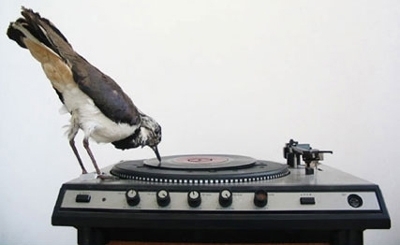
Jeroen Diepenmaat’s “Pour des dents d’un blanc éclatant et saines” (2005)
Big ups to Trevor Schoonmaker on the opening today of his museum-size ode to vinyl, “The Record”. If you’re wondering how hip-hop can reconfigure the art space, here’s one outer edge. Trevor’s been at this for years, and to see his vision finally coming to fruition in the beautiful Nasher Museum is gratifying.
(Trevor was also the driving force behind the groundbreaking Fela: Black President exhibition at the New Museum back in 2003, which is still echoing through to the beautiful set for our favorite Broadway play.)
So many of our favorite folks in life and art are repped here and in the museum events it’s hard to know where to start: Dave Tompkins, Mark Anthony Neal, Fatimah Tuggar, DJ Rekha, Malick Sidibe, Christian Marclay, Lyota Yagi, Carrie Mae Weems, Ujino Muneteru, and the 9th Wonder. The list goes on. Where else could you see Mingering Mike and Ed Ruscha together?
If you can’t make it out, the Nasher has a great B-Side website that includes links to that classic YouTube video series on how records are made and Barkley talking about his record collection. I have a little essay in the catalogue and I will admit that makes me a tiny bit proud of myself today.
posted by Jeff Chang @ 12:17 am | 0 Comments
Wednesday, September 1st, 2010
Style Wars Restoration Benefit Event
For the NYC fam (Brooklyn represent!) here’s an amazing event. One night only. On the big screen. It’s being put together by Henry Chalfant to raise money to restore the classic hip-hop film he made with the late great Tony Silver, “Style Wars”. Changed my life. Help Henry and the fam get it back out to change many more!
posted by Jeff Chang @ 3:19 pm | 0 Comments
Monday, August 30th, 2010
E.L. Doctorow On The State Of The Arts & Artists
E.L. Doctorow has a brilliant essay in this week’s issue of The Nation on where American artists and arts are now at this point in history. An excerpt:
Artists in America don’t usually band together. They are independent entrepreneurs of their imaginations. They create universes of which they are the sole occupants. They may influence one another, they may be bundled by critics as members of an aesthetic movement, but they work alone and think alone, and if they gather on social occasions, like the members of any trade, it is for warmth, for they all know how few of them there are and how unseen by most of the population.
But there are critical moments in our national life when artists do come together as a constituency…
(snip of a beautiful passage on artists in the 1930s)
So here now today, in a new century, is this assemblage of artists, poets, musicians and playwrights, and we must ask what is the crisis today that impels them, in all their brilliant individuality, to present themselves as a group show?
The fact is that some terrible deep damage to the nation was done in the aftermath of 9/11. The government that swung into action misdirected its response and, with devious arguments to the American people, took us to war. In short time it had adopted the policies of an authoritarian state. Americans found themselves the sponsors of torture, and of the endless imprisonment without trial or counsel of presumed terrorists; they learned well after the fact that they themselves were subject to secret illegal surveillance by their government, and they saw their Constitution disdained with the unilateral abrogation of international treaties such as the Geneva Convention, though such treaties are constitutionally “the supreme Law of the Land.” All these measures were claimed as wartime expedients and promoted with a propaganda of fear. At the same time, the scientific evidence of global warming was ignored, religious literalism was put in the way of medical advance, regulatory agencies were given over to the very industries they were to regulate and, rife with wartime corruption, this government left to wallow an American population severely alienated by gross economic inequalities, the forces of wealth thriving at the expense of the middle class and the shrill demagogues of right-wing radio and television shouting down all principled disagreement with what was happening. The resulting trauma to the American people’s sense of themselves and their country is still being felt. We have not wanted to believe that a sitting president and his advisers could have so given themselves to an agenda of social, economic and environmental deconstruction, and with such relentless violations of constitutional law as to render themselves, definably, as subversives.
(snip, you just gotta go read it)
…All of this together would seem to define a national identity crisis, a terribly weakened sense of ourselves as a proud citizenry in charge of our lives—a calamity of heart as bad as what America suffered in the Great Depression.
Under these circumstances, our art, literature and music, all of which comes up from the bottom, uncensored, unfiltered, unrequested—the artists of whatever medium always coming out of nowhere—does tell us that something is firm and enduring after all in a country given to free imaginative expression that few cultures in the world can tolerate.
Read it in full here.
posted by Jeff Chang @ 3:27 pm | 0 Comments
Saturday, August 28th, 2010
The End Of Darkness?
Not here to give idiots any more earned media–except to say “Hmmmm, ‘End of Darkness’, MLK evocation…and all this Beck/Tea Party/idiot BS is not about race?” OK.
But more to the point, I’m back. Saying HEY after another summer of our national discontent to give you a quick update on what’s up in my world.
I’ve been working furiously on Who We Be: The Colorization of America and so the good news is you can expect to see some of the fruits of that in the coming months, as well as more writings.
Since I will be doing a lot of heavy lifting for the book–and a couple of other huge projects I’ll be telling you about soon–you won’t see much of me publicly over the next several months. If you’re interested in that, check the Dates page.
But I will be back around here a bit more. I’ll be working on updating The Reader with more articles I’ve done over the years.
For everything else, you can always follow me too at my Twitter feed at Zentronix.
Back to school, back to work, back to fighting the idiots. See you soon.
posted by Jeff Chang @ 6:45 am | 0 Comments
Previous Posts
- Who We Be + N+1=Summer Reading For You
- “I Gotta Be Able To Counterattack” : Los Angeles Rap and The Riots
- Me in LARB + Who We Be Update
- In Defense Of Libraries
- The Latest On DJ Kool Herc
- Support DJ Kool Herc
- A History Of Hate: Political Violence In Arizona
- Culture Before Politics :: Why Progressives Need Cultural Strategy
- It’s Bigger Than Politics :: My Thoughts On The 2010 Elections
- New In The Reader: WHO WE BE PREVIEW + Uncle Jamm’s Army
Feed Me!
Revolutions
- DJ Nu-Mark :: Take Me With You
DJ Nu-Mark remixes the diaspora…party ensues! - El General + Various Artists :: Mish B3eed : Khalas Mixtape V. 1
The crew at Enough Gaddafi bring the most important mixtape of 2011–the street songs that launched the Tunisian & Egyptian Revolutions… - J. Period + Black Thought + John Legend :: Wake Up! Radio mixtape
Remixing the classic LP w/towering contributions from Rakim, Q-Tip + Mayda Del Valle - Lyrics Born :: As U Were
Bright production + winning rhymes in LB’s most accessible set ever - Model Minority :: The Model Minority Report
The SoCal Asian American rap scene that produced FM keeps surprising… - Mogwai :: Hardcore Won't Die But You Will
Dare we call it majestic? - Taura Love Presents :: Picki People Volume One
From LA via Paris with T-Love, the global post-Dilla generation goes for theirs…
Word
- Cormac McCarthy :: Blood Meridian
Read this now before Hollywood f*#ks it up. - Dave Tompkins :: How To Wreck A Nice Beach
Book of the decade, nuff said. - Joe Flood :: The Fires
The definitive account of why the Bronx burned - Mark Fischer :: Capitalist Realism
K-Punk’s philosophical manifesto reads like his blog, snappy and compelling. Just replace pop music with post-post-Marxism. Pair with Josh Clover’s 1989 for the full hundred. - Nell Irvin Painter :: The History of White People
Well worth a Glenn Beck rant…and everyone’s scholarly attention - Robin D.G. Kelley :: Thelonious Monk : The Life And Times Of An American Original
Monk as he was meant to be written - Tim Wise :: Colorblind
Wise’s call for a color-conscious agenda in an era of “post-racial” politics is timely - Victor Lavalle :: Big Machine
Victor Lavalle does it again!
Fiyahlinks
- ++ Total Chaos
The acclaimed anthology on the hip-hop arts movement - ARC
- Asian Law Caucus | Arc of 72
- AWOL Inc Savannah
- B+ | Coleman
- Boggs Center
- Center For Media Justice
- Center For Third World Organzing
- Chinese For Affirmative Action
- Color of Change
- ColorLines
- Dan Charnas
- Danyel Smith
- Dave Zirin
- Davey D
- Disgrasian
- DJ Shadow
- Elizabeth Mendez Berry
- Ferentz Lafargue
- Giant Robot
- Hip-Hop Theater Festival
- Hua Hsu
- Humanity Critic
- Hyphen Magazine
- Jalylah Burrell
- Jay Smooth
- Joe Schloss
- Julianne Shepherd
- League of Young Voters
- Lyrics Born
- Mark Anthony Neal
- Nate Chinen
- Nelson George
- Okay Player
- Oliver Wang + Junichi Semitsu :: Poplicks
- Pop + Politics
- Presente
- Quannum
- Raquel Cepeda
- Raquel Rivera
- Rob Kenner
- Sasha Frere-Jones
- The Assimilated Negro
- Theme Magazine
- Toure
- Upper Playground
- Wayne Marshall
- Wiretap Magazine
- Wooster Collective
- Youth Speaks
@zentronix
- No public Twitter messages.
Come follow me now...
Archives
- July 2014
- May 2012
- January 2012
- June 2011
- February 2011
- January 2011
- December 2010
- November 2010
- October 2010
- September 2010
- August 2010
- June 2010
- May 2010
- April 2010
- March 2010
- February 2010
- December 2009
- November 2009
- October 2009
- September 2009
- August 2009
- July 2009
- June 2009
- May 2009
- February 2009
- January 2009
- December 2008
- November 2008
- October 2008
- September 2008
- August 2008
- July 2008
- June 2008
- May 2008
- April 2008
- March 2008
- February 2008
- January 2008
- December 2007
- November 2007
- October 2007
- September 2007
- August 2007
- July 2007
- June 2007
- May 2007
- April 2007
- March 2007
- February 2007
- January 2007
- December 2006
- November 2006
- October 2006
- September 2006
- August 2006
- July 2006
- June 2006
- May 2006
- April 2006
- March 2006
- February 2006
- January 2006
- December 2005
- November 2005
- October 2005
- September 2005
- August 2005
- July 2005
- June 2005
- May 2005
- April 2005
- March 2005
- February 2005
- January 2005
- December 2004
- November 2004
- October 2004
- September 2004
- August 2004
- July 2004
- June 2004
- May 2004
- April 2004
- March 2004
- February 2004
- January 2004
- December 2003
- November 2003
- October 2003
- September 2003
- August 2003
- July 2003
- June 2003
- May 2003
- April 2003
- March 2003
- February 2003
- January 2003
- December 2002
- November 2002
- October 2002
- September 2002
- August 2002
- July 2002
- June 2002
We work with the Creative Commons license and exercise a "Some Rights Reserved" policy. Feel free to link, distribute, and share written material from cantstopwontstop.com for non-commercial uses.
Requests for commercial uses of any content here are welcome: come correct.


